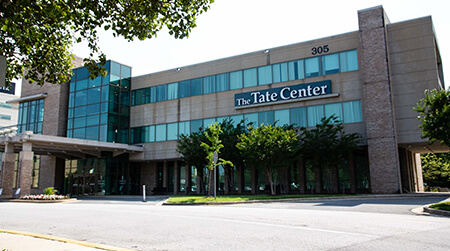

We offer integrated gynecologic cancer care services at Chesapeake Oncology Hematology Associates (COHA), from diagnosis to treatment. Our skilled and experienced gynecologic oncology team uses the latest state-of-the-art technology to ensure that you receive high-quality care.

It is often the primary treatment option advised by specialists that help get rid of the cancerous tumor/ tumors and also stops cancer from metastasizing. We typically utilize minimally invasive surgical procedures to manage early-stage cervical, uterine, and ovarian cancers.
The second line of treatment after surgery is chemotherapy that prevents the remaining cancerous cells from growing, spreading, and dividing. Chemotherapy can be the primary treatment option, or it can be used before or after surgery to kill the cancerous cell and shrink the tumor.
Immunotherapy works with the body's natural immune system to fight cancerous growth. The treatment alters the immune system to enhance the detection of cancerous cells in the body and stop their growth.
A widely used cancer treatment, this therapy uses a beam of high-intensity radiation to kill cancer cells while leaving healthy cells intact. The length and duration of your radiation therapy will depend on the type and extent of your cancer, and your treatment will be adapted accordingly.

8:00 AM ~ 4:30 PM (M-F)

8:00 AM ~ 4:30 PM (M-F)

8:00 AM ~ 4:30 PM (M-F)
Cancer that affects the reproductive organs of females, including the cervix, vagina, uterus, and ovaries, is called gynecologic cancer. Gynecologic cancers can start in several areas within a woman's pelvis.
All women are at risk of developing gynecologic cancers, and this risk increases with age. Other factors that also increase the risk include:
No, all gynecologic conditions are not cancerous. However, if you are having any gynecologic issues, it is best to seek medical consultation immediately to ensure whether it is cancerous or not. However, every female is at risk for gynecological cancers, which amplifies with age.
Being diagnosed with gynecologic cancers, especially in young patients, can cause fertility concerns. Some kinds of cancers and their treatments can hamper fertility. For example, after cervical cancer treatment, your fertility may be affected by radiotherapy, or vital parts of your reproductive system may be removed, adversely impacting your fertility. It is best to consult with our team for the best approach to preserve fertility.
Some cancers should be tested for genetic mutations since the treatment might have to be different if cancer has a serious genetic mutation. Discuss with your doctor to know if you would need genetic mutation testing, and they can help you with the testing process as well. People with moderate to high family history of breast and ovarian cancer should be genetically tested.
Some tips for gynecological cancer prevention include